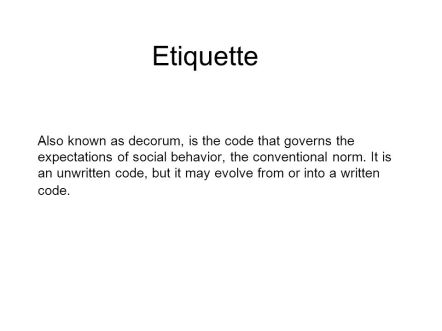
“If you ask me what I came here to do in this world,
I, an artist, will answer you: I am here to live out loud.”
–Emile Zola
The “great experiment” that is America has been challenged many times in the last two centuries, but all those attacks, both foreign and domestic, from the Civil War to Civil Rights, desegregation to suffrage, Iran-Contra to 911, had one thing in common which enabled transcendence of such tragedies—decorum. Even when disagreements arose, those at battle remained armed with respect for each other’s love of this country and maintained dignity in the presence of world media in an effort to demonstrate that America can handle its problems without digressing to schoolyard banter and behavior, and all sides insisted upon an absolute respect of the facts.
Some pundits assure us that “the Republic will survive, don’t worry.” It used to be easy to believe this; it used to be clear that our differences as citizens did not outweigh our love of this nation, and when the powers that be respectfully followed the rule of law and accepted the common denominator of truth, while not everyone would be happy with the results, the dissenting opinions at the very least knew those results were not attained for spiteful and personal reasons.
Listen to John McCain defend former President Barack Obama’s character to a voter who despised McCain’s opponent and verbally, wrongfully, abused him. Listen to the courtesy and respect for service to our nation shared by candidates Nixon and Kennedy in their debates. Listen to just about any two candidates in political history who, while they may find great fault with their opponents’ stance and sometimes even their character, knew to remain like an adult and maintain the presence of mind to understand basic human behavior.
The absence of that decorum will be the death of this nation long before any particular amendment or Supreme Court decision. Recently, a woman in North Carolina has been celebrated by her peers for refusing to apologize for a barrage of racial slurs thrown at a minority on the street. She is not alone as citizens abuse our first amendment rights to expose their decidedly prejudiced points of view. This has been occurring with more frequency only since such classless behavior was demonstrated by the president dating back to his candidacy. Leaders who lower themselves so far as to speak in such uneducated terms will, in turn, as German native and American businessman Michael Kuhnert points out, elevate the egos of their followers by giving them some perceived superiority over all other groups based on race, nationality, religion, and gender. This is a primary method of fascism.
The conflicts caused by this growing trend to degrade those different than the mob is not about policy, and oddly enough it isn’t even about the allegations of criminal behavior on the part of either the president or members of congress; it is entirely possible previous political leaders were just as crooked, just as underhanded. Instead, it is about creating division in this country, again, based solely upon race, religion, ethnicity, and sexual preference, and that division has ignited a war of words not grounded in any form of valid debate but rather in the banter of street gangs and enraged mobs. It isn’t solely that such rallies persist with chant such as, “Lock her up!” and “Send them back!” but that those to whom we are supposed to look up to, those who are vying for the right to lead us and our country, stand idly by, which merely encourages the crowd.
The United States position as a world leader is clearly in question. The dependence of the world on this country in the wake of World War Two is long over, and countries will find other trading partners; they will build relationships with other nations, and they will not lose a beat as they write new treaties without the involvement, let alone the leadership, of the United States. And it isn’t beyond possible that they’ll discover they’re better off without the foul-mouthed, unpredictable commentary from Washington. Once gone, reestablishing those relationships might just be meaningless for them. No foreign power brought us down; no violation of treaties, no declaration of war, no natural disaster or terrorist attack broke the spine of this nation: we did it to ourselves with our blatant and repulsive hatred of our own citizens, and by demonstrating a severe lack of class in how we relate to each other.
The leaders of this country have become the most undignified group of leaders this land has ever seen, and that will break our endurance as a great nation more than any disagreement over policy. The poison which runs through the marrow of this nation is not political dissent, it is not historically divisive issues such as abortion or gun control, it is pure hatred; the repugnant, immature, ignorant hatred displayed by the president and members of congress for our country’s own citizens.
This, then, is an appeal to my artist friends. Despite our quiet voices in this sea of noise, it has always been the task of the artist to expose inequity, injustice, and fascist tendencies. It was Thomas Paine whose small, seditious pamphlet Common Sense instilled in the citizens of the colonies the ability to move forward. It was David Walker in the early 1800s who called upon his Black brethren to resist. It was Thoreau’s Civil Disobedience; it was Carl Sandburg; it was John Stuart Mill and Richard Wright; it was the writings of Woody Guthrie and Bob Dylan.
It was—it is—the artists.
President John F. Kennedy said, “When power leads man toward arrogance, poetry reminds him of his limitations. When power narrows the area of man’s concern, poetry reminds him of the richness and diversity of existence. When power corrupts, poetry cleanses.”
The writer, despite his isolation, has it in his or her power to put voice to what others wish to say but cannot, but once they hear it said, they sing along with the harmony of their generation. Ginsberg wrote, “Poetry is the outlet for people to say in public what is known in private.” And the beloved Robert Frost said, “A poem begins as a lump in the throat, a sense of wrong.”
The artists of our nation must combine our talents with our grief, blend our anxiety with our refrain, and we must risk exposing truth to say in whatever way we can, with whatever genre we must, that we used to be better than this, and we will not allow the loud voices of hate drown out the insistent chant of respect.





There is indeed precedent to this present American catastrophe: Germany in the early 1930’s. Much has been said about the economic circumstances and deep resentments that caused the rise of fascism in that country. Truth is that nothing would have become of Adolf Hitler, had the citizens of Germany not given up civility, logic and moral standard in public discourse. In other words a nation becomes crude in its argumentation, language and political aims. Simple paroles are enough to send the mentions in spiteful frenzy. Simple laws of mass psychology still do their magic. And all of these demagogues have one thing in common:
They elevate the egos of their followers by giving them this perceived superiority over all other groups based on race, nationality, religion, gender and sexual orientation.
History never repeats itself, but the mechanisms which influence and make history do. This is not Germany, what we are discussing is the mechanism of fascism. Therefore we can see recurrence, be it in the Inited States, or be it in Europe.
Democracy is worth fighting for, once gone, it is hard to get it back.
LikeLiked by 1 person
This is well stated with beauty and passion, yet without hyperbole. We all know what to expect from our “president”, but the Republican questioning of Mueller this week was as ugly and shocking a display of tribalism as any, more so in a setting where decorum is so paramount. Mueller’s refusal to wrestle in the mud, the repeated “I take your question”, became the modern version of turning the other cheek.
Bob, you should submit this to The NY Times or Washington Post letters to the editor, better yet an Op Ed!
LikeLiked by 1 person
Stellar writing. Thank you.
LikeLike